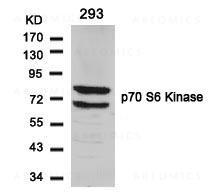Cookie preferences
This website uses cookies, which are necessary for the technical operation of the website and are always set. Other cookies, which increase the comfort when using this website, are used for direct advertising or to facilitate interaction with other websites and social networks, are only set with your consent.
Configuration
Technically required
These cookies are necessary for the basic functions of the shop.
"Allow all cookies" cookie
"Decline all cookies" cookie
CSRF token
Cookie preferences
Currency change
Customer-specific caching
FACT-Finder tracking
Individual prices
Selected shop
Session
Comfort functions
These cookies are used to make the shopping experience even more appealing, for example for the recognition of the visitor.
Note
Show the facebook fanpage in the right blod sidebar
Statistics & Tracking
Affiliate program
Conversion and usertracking via Google Tag Manager
Track device being used
| Item number | Size | Datasheet | Manual | SDS | Delivery time | Quantity | Price |
|---|---|---|---|---|---|---|---|
| ABE-35-1606-100 | 100 µg | - |
3 - 11 business days* |
682.00€
|
If you have any questions, please use our Contact Form.
You can also order by e-mail: info@biomol.com
Larger quantity required? Request bulk
You can also order by e-mail: info@biomol.com
Larger quantity required? Request bulk
RPS6KB1 phosphorylates the Ribosomal Protein-S6. Activation of RPS6KB1 requires a complex,... more
Product information "Anti-p70 S6 Kinase (Ab-424)"
RPS6KB1 phosphorylates the Ribosomal Protein-S6. Activation of RPS6KB1 requires a complex, ordered series of conformational changes and phosphorylation reactions. While the role of sequential, multi-site phosphorylation has been extensively detailed, characterization of the priming step required to initiate this cascade has remained elusive. Probably this priming process is dependent on calcium. Calcium-dependent regulation of RPS6KB1 does not specifically target Thr-229 and Thr-389, the key regulatory phosphorylation sites, rather, calcium chelation results in a global inhibition of RPS6KB1 phosphorylation. The initial calcium-dependent process is required to release an inhibitory interaction between the C- and N-termini of RPS6KB1, thus allowing phosphorylation of key domains. The priming event involves formation of a calcium-dependent protein complex that releases the interaction between the N- and C-termini. RPS6KB1 is then accessible for activation by the kinases that target the known regulatory phosphorylation sites . Satoru Eguchi et al. (1999) J Biol Chem, Vol. 274: 36843-36851 Papst PJ, et al. (1998) J Biol Chem. 273(24):15077-84. Ulrike Krause et al. (2002) Eur. J. Biochem. 269: 3751-3759 c Le, X.F, et al. (2003) Oncogene 22: 484 Protein function: Serine/threonine-protein kinase that acts downstream of mTOR signaling in response to growth factors and nutrients to promote cell proliferation, cell growth and cell cycle progression. Regulates protein synthesis through phosphorylation of EIF4B, RPS6 and EEF2K, and contributes to cell survival by repressing the pro-apoptotic function of BAD. Under conditions of nutrient depletion, the inactive form associates with the EIF3 translation initiation complex. Upon mitogenic stimulation, phosphorylation by the mammalian target of rapamycin complex 1 (mTORC1) leads to dissociation from the EIF3 complex and activation. The active form then phosphorylates and activates several substrates in the pre-initiation complex, including the EIF2B complex and the cap-binding complex component EIF4B. Also controls translation initiation by phosphorylating a negative regulator of EIF4A, PDCD4, targeting it for ubiquitination and subsequent proteolysis. Promotes initiation of the pioneer round of protein synthesis by phosphorylating POLDIP3/SKAR. In response to IGF1, activates translation elongation by phosphorylating EEF2 kinase (EEF2K), which leads to its inhibition and thus activation of EEF2. Also plays a role in feedback regulation of mTORC2 by mTORC1 by phosphorylating RICTOR, resulting in the inhibition of mTORC2 and AKT1 signaling. Mediates cell survival by phosphorylating the pro-apoptotic protein BAD and suppressing its pro-apoptotic function. Phosphorylates mitochondrial URI1 leading to dissociation of a URI1-PPP1CC complex. The free mitochondrial PPP1CC can then dephosphorylate RPS6KB1 at Thr-412, which is proposed to be a negative feedback mechanism for the RPS6KB1 anti- apoptotic function. Mediates TNF-alpha-induced insulin resistance by phosphorylating IRS1 at multiple serine residues, resulting in accelerated degradation of IRS1. In cells lacking functional TSC1- 2 complex, constitutively phosphorylates and inhibits GSK3B. May be involved in cytoskeletal rearrangement through binding to neurabin. Phosphorylates and activates the pyrimidine biosynthesis enzyme CAD, downstream of MTOR (PubMed:11500364, PubMed:12801526, PubMed:14673156, PubMed:15071500, PubMed:15341740, PubMed:16286006, PubMed:17052453, PubMed:17053147, PubMed:17936702, PubMed:18952604, PubMed:19085255, PubMed:19720745, PubMed:19935711, PubMed:19995915, PubMed:23429703). Following activation by mTORC1, phosphorylates EPRS and thereby plays a key role in fatty acid uptake by adipocytes and also most probably in interferon-gamma-induced translation inhibition (PubMed:28178239). [The UniProt Consortium]
| Keywords: | Anti-S6K1, Anti-STK14A, Anti-P70S6K1, Anti-RPS6KB1, Anti-p70 S6KA, Anti-p70-S6K 1, Anti-S6K-beta-1, Anti-p70 S6K-alpha, Anti-p70 S6 kinase alpha, Anti-Ribosomal protein S6 kinase I, Anti-p70 ribosomal S6 kinase alpha, Polyclonal Antibody to p70 S6 Kinase |
| Supplier: | Abeomics |
| Supplier-Nr: | 35-1606 |
Properties
| Application: | WB, IHC, IF |
| Antibody Type: | Polyclonal |
| Conjugate: | No |
| Host: | Rabbit |
| Species reactivity: | human, mouse, rat |
| Immunogen: | Peptide sequence around aa.422~426 (P-V-S-P-V) derived from Human p70S6k. |
| Format: | Purified |
Database Information
| KEGG ID : | K04688 | Matching products |
| UniProt ID : | P23443 | Matching products |
| Gene ID | GeneID 6198 | Matching products |
Handling & Safety
| Storage: | +4°C |
| Shipping: | +4°C (International: +4°C) |
Caution
Our products are for laboratory research use only: Not for administration to humans!
Our products are for laboratory research use only: Not for administration to humans!
Information about the product reference will follow.
more
You will get a certificate here
Viewed

















